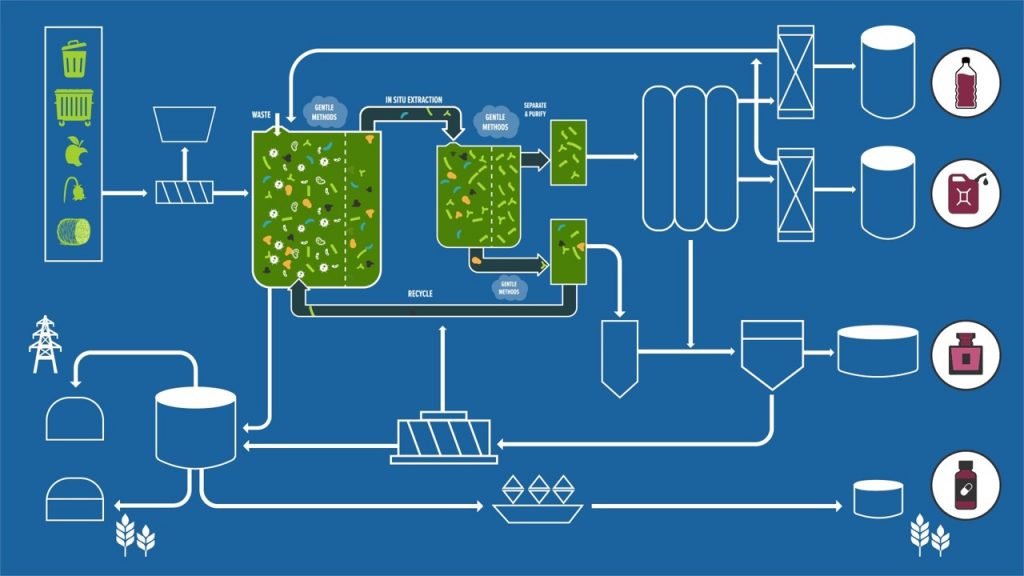Aim:
Mixed culture anaerobic fermentation (AF) is relatively new compared to anaerobic digestion (AD), although the two are sometimes linked in terms of process and biochemistry. Recovery of organic products including fatty acids is the core task for AF, and it also offers potential for plant nutrient recovery at the same time.
One of the key processes to unlock the potential of AF as an environmental biotechnology, and a pillar of the circular bioeconomy, is direct product recovery from fermentation broth. This is extremely important to achieve steady-state continuous operation, in contrast to the over-exploited batch experiments. This aspect closely matches EBNet’s professed interest in the interaction between the biological system and its engineering envelope. Product-induced feedback inhibition could also be explored for continuous operation, to produce longer chain acids which are more valuable and easier to recover, rather than acetic acid. Feedstock characteristics also affect the product composition, and if the proposed group is interested in upstream processes and materials there is also potential to interact with BBNet. AF thus has upstream, central and downstream aspects: if we would like to see it adopted, then all of these components must work together.
This WG therefore aims to promote the integration of the different elements within the anaerobic fermentation process and system in order to maximise resource recovery and at the same time minimise the use of external inputs and the generation of waste materials.
Working Group Co-ordinators

Dr Yue Zhang is an Associate Professor at the University of Southampton. Her research interests include anaerobic digestion, CO2 biomethanisation and mixed-culture fermentation for bio-based chemical production with integration of downstream recovery processes, especially on selective carboxylic acid production from protein-rich wastes.
Dr Luca Alibardi is Lecturer in Separation Processes at the Water Science Institute of Cranfield University. His research interests focus on systems integration and on the development of separation technologies to lead on the transition towards the circular and hydrogen economies. He developed knowledge in the field of biological hydrogen production from organic waste via the dark fermentation process and in the definition of dark fermentation as a key step in biorefinery schemes for energy and products recovery from wastewater and waste treatments.
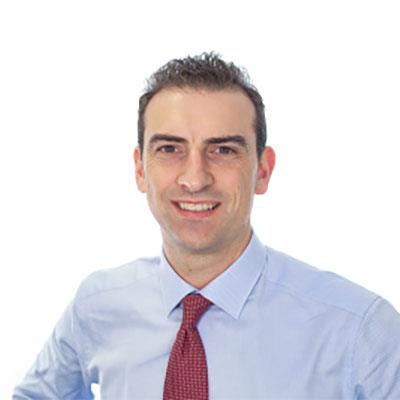
Interested?
Contact the WG co-ordinators: y.zhang@soton.ac.uk & l.alibardi@cranfield.ac.uk.
Latest news
See here for recent items from this WG, and for more news click on tags for AF WG or Anaerobic Fermentation
For the video playlist from this WG see HERE.
For more details on activities to March 2025, see the AF WG Activity Report
Working Group Activities
Animation
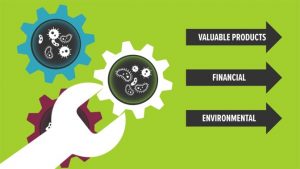 Anaerobic fermentations: A sustainable approach to everyday products by turning waste into value – see this WG’s short animation in EBNet’s series on interactions between microbiology and engineering systems, which illustrates how physico-chemical factors can be used to influence to performance and products through the process chain.
Anaerobic fermentations: A sustainable approach to everyday products by turning waste into value – see this WG’s short animation in EBNet’s series on interactions between microbiology and engineering systems, which illustrates how physico-chemical factors can be used to influence to performance and products through the process chain.
Reports and workshops
The Role of Anaerobic Fermentation (AF) in the Cicular Bioeconomy. This Summary Report describes the key findings from a workshop on AF supported jointly by EBNet and the Biomass Biorefinery Network, which took place on 23-24 January 2025. The aim was to address research and development gaps and needs for this industrial biotechnology route. A brief outline of the event is available here. A more detailed report on the outcomes will be available in 2026, together with a Position Statement.
Dr Maria Ramos Suarez looked at Implications of Emerging Biotechnologies for Bioreactor Materials on behaf of our BES and AF WGs. This study arose from industry/academic discussions and explores the implications of emerging industrial and environmental biotechnologies for producers and users of industrial bioreactors. The full report is embargoed while a paper is in preparation but will be available here soon.
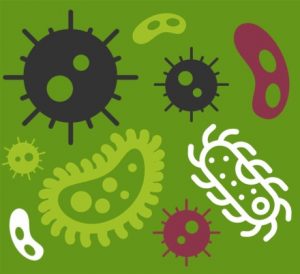 The AF WG is also carrying out desk-based and small-scale test-the-concept studies on integrated AF and product recovery: a summary of their work can be found here.
The AF WG is also carrying out desk-based and small-scale test-the-concept studies on integrated AF and product recovery: a summary of their work can be found here.
Webinar and presentation
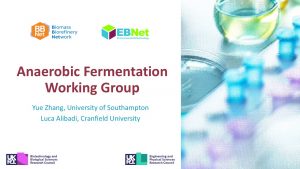 An invited talk on The Anaerobic Fermentation Working Group, and the role of Anaerobic Fermentation in the circular bio-economy was given by Dr Yue Zhang at the 4th BBNet conference on The Future Prospects for Biorefining: Feedstocks, Technologies & Products held in Sheffield, UK on 15-17 Oct 2025 in Sheffield. A recorded version of the talk is available here from 30 Oct 2025.
An invited talk on The Anaerobic Fermentation Working Group, and the role of Anaerobic Fermentation in the circular bio-economy was given by Dr Yue Zhang at the 4th BBNet conference on The Future Prospects for Biorefining: Feedstocks, Technologies & Products held in Sheffield, UK on 15-17 Oct 2025 in Sheffield. A recorded version of the talk is available here from 30 Oct 2025.
Webinar
Mixed-Culture Anaerobic Fermentation in the EU: updates from HORIZON 2020 projects on biowaste-derived volatile fatty acid platform, 4 March 2025 13-14:00 (UK)
Keeping you up-to-date with pioneering work in Europe, these speakers cover the HORIZON 2020 projects VOLATILE/CAFIPLA, developments in Standardisation, and insights from Pilot Scale research. A recording of the webinar is available HERE.
- Volatile Fatty Acid Platform – from biowaste treatment towards upcycling (Thomas Dietrich, TECNALIA).
- CEN Workshop agreement CWA 17484: 2020 – Anaerobic digestion plants – Feasibility assessment methodology for integrating a Volatile Fatty Acid Platform Technology (Dr Jochen Michels, DECHEMA).
- Experiences in Operating a Volatile Fatty Acid Pilot from the industry perspective (Dr Marie-Aline Pierrard, IDELUX)
- Thomas Dietrich, TECNALIA. Thomas Dietrich holds an engineering degree in biotechnology and works as project manager at TECNALIA Research & Innovation (Spain). He has long-standing experience in biomass valorisation and biorefinery concepts and coordinated several EU funded research projects in this area since FP6, including VOLATILE (https://cordis.europa.eu/project/id/720777) and CAFIPLA (https://cordis.europa.eu/project/id/887115), with volatile fatty acids produced by mixed-culture anaerobic fermentation being an essential biorefinery platform.
- Jochen Michels, DECHEMA. Jochen Michels has more than 30 years of experience in project coordination in the field of renewable resources, biorefineries, bioeconomy and biobased products. Currently he works at DECHEMA e.V. (Germany). https://www.linkedin.com/in/jochenmichels/?originalSubdomain=de
He is also strongly involved / contact person of the project BioBall – Bioeconomy in the Metropolitan Area. https://urban-bioeconomy.de/bioball/home_en.html - Marie-Aline Pierrard, DELUX. Marie-Aline Pierrard has a Master of Biological Science with a specialization in ecology of fresh water and a Doctor (PhD) in Biological Sciences, Environmental Toxicology, both at Namur University. Additionally, she holds a post-Doc from the Luxembourg Institute of Health. Currently, she is working as project manager at IDELUX Environnement, a waste treatment facility operating an anaerobic digestion plant and composting facility in Belgium.
https://www.linkedin.com/in/marie-aline-pierrard-8116064b/?originalSubdomain=be
Marie-Aline operated the CAFIPLA pilot under very adverse environmental conditions and gained a lot of experiences under pilot conditions of a VFA platform.
Relevant Publications
Life cycle sustainability assessment of short chain carboxylic acid produced from municipal bio-wastes. E. Lizasoain-Arteaga, A. Sáez-de-Guinoa, M.M. Parascanu, M. Isasa. In: Waste Management. Volume 179, 30 April 2024, Pages 175-181
Current perspectives on acidogenic fermentation to produce volatile fatty acids from waste. Ramos-Suarez, M., Zhang, Y. and Outram, V., 2021. Reviews in Environmental Science and Bio/Technology, 20(2), pp.439-478.
Organic waste biorefineries: Looking towards implementation Alibardi, L., Astrup, T.F., Asunis, F., Clarke, W.P., De Gioannis, G., Dessì, P., Lens, P.N., Lavagnolo, M.C., Lombardi, L., Muntoni, A. and Pivato, A., 2020. Organic waste biorefineries: Looking towards implementation. Waste Management, 114, pp.274-286.
Production of volatile fatty acids from slaughterhouse blood by mixed-culture fermentation. Plácido, Jersson and Zhang, Yue (2018). In: Biomass Conversion and Biorefinery, 8 (3), 621-634.
